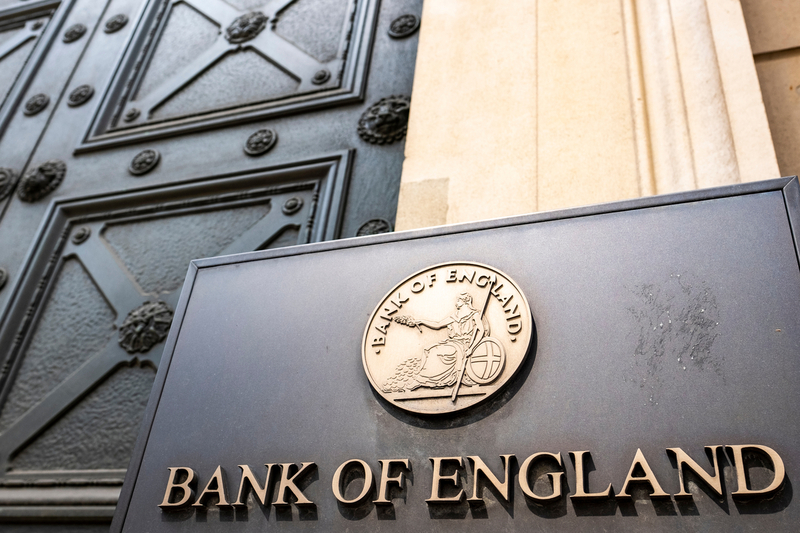Getting ready for an election: Battle grounds are drawn as Chancellor delivers Spring Budget
Today’s Spring Budget had more than a whiff of an election budget as the Chancellor cemented the Government’s “stick to the plan” argument, scattering the government’s 14-year record around the new announcements.

Senior Journalist, covering the Credit Strategy and Turnaround, Restructuring & Insolvency News brands.
As for what was announced, most didn’t come as a surprise with precious little not already pre-briefed. The flagship policy – coming at the end of his 60-minute speech frequently interrupted by jeers, cheers and hear-hears was the much-trailed 2p cut in National Insurance contributions, which will come into effect from 6 April. For the self-employed, meanwhile, National Insurance will fall from 8p to 6p.
Other key announcements included:
- An Extension of the Energy Profits Levy – stretching from 2028 to 2029
- Reduction in Capital Gains Tax on properties from 28% to 24% from April
- Introduction of a new UK ISA to encourage investment, with an annual limit of £5,000
- Sale of public shares in NatWest, subject to market conditions
- Increase in the VAT registration threshold from £85,000 to £90,000, taking around 28,000 small businesses out of paying VAT although
- £240m to build 8,000 houses, with the government claiming to be on track to meet its one million house-building target.
Household and Business Support:
The Chancellor also extended the Household Support Fund for another six months beyond March 31st and froze fuel duty for the next 12 months, continuing the temporary 5p cut. He also abolished the £90 Debt Relief Order charge and extended the repayment period for the budget advance loan from 12 months to 24 months.
“The extension of the Household Support Fund is a welcome lifeline for millions of struggling households across the UK – the onus is now on local councils to do more to boost awareness and simplify the application process.
“Our recent research found that, with just weeks to go before the scheme was due to close, £85m remained unclaimed, with dozens of councils sitting on over £1m in support whilst vulnerable people in their communities have been struggling to pay bills.
“There is an opportunity to learn from the challenges of the previous Household Support Fund schemes and ensure there is greater effort to identify vulnerable people and proactively reach out to provide financial vital support and prevent people from being forced to turn to turn to high-cost credit products, or predatory lenders in order to survive.” - Neil Kadagathur, Creditspring, CEO
“It’s encouraging to see a six-month extension to the Household Support Fund (HSF) announced today, but it’s questionable how much things will improve in that time, especially considering two in five people are currently struggling to keep up with household bills and credit commitments.
“Our advisors regularly speak to clients struggling to meet even the most basic needs, like getting a healthy meal and keeping the heating on. Local support funded by the Household Support Fund are a crucial lifeline for them.
“Increasing repayment times from 12 months to 24 months for Universal Credit budgeting advances will improve affordability for those struggling to make ends meet. However, we know that millions of people receiving UC are still subject to unaffordable deductions from their benefits to repay other government debts and more will need to be done to end unaffordable UC deductions that can all too often cause real hardship.
“We are particularly pleased to see the announcement that the application fee for Debt Relief Orders will be scrapped and this will be remove a real barrier to those seeking support with problem debt. When already facing financial hardship, fees to access solutions can be prohibitive in getting back on track and rebuilding financial security.
“Today’s announcements are steps in the right direction, but further reforms are needed to reduce essential costs like council tax and energy. We have called on the Government to commit to introduce an effective council tax support scheme and develop a social tariff for energy as soon as possible.” - Richard Lane, StepChange Debt Charity, Chief Client Officer
Meanwhile The Recovery Loan Scheme, renamed the Growth Guarantee Scheme, was extended to provide continued support for SMEs.
“Today’s decision to provide £200m of funding to extend the recovery loan scheme, enabling 11,000 small and medium-sized enterprises access to the finance they need, brings hope and encouragement to both businesses and consumers.” - Douglas Grant, Manx Financial Group CEO
OBR forecasts
Off the back of this, government forecaster the OBR outlined its projections for the next five years.
Economic Growth and GDP:
- GDP growth has been disappointing since the last forecast
- GDP per person is expected to fall to 1.25% below its pre-pandemic peak in the middle of 2024, ending the forecast period almost one percentage point lower than previously expected.
Inflation and Interest Rates:
- The OBR expects a steeper fall in inflation and interest rates to support stronger economic recovery this year and next year.
- Inflation is forecast to fall back to the 2% target by the second half of 2024, helped by lower global energy prices and a cooling labor market.
- However, disruptions to global shipping and ongoing conflicts pose risks to this more favorable inflation outlook.
- Interest rates are projected to decline from the current 15-year high of 5.25% to just over 3% by 2026, around 0.75 percentage points lower than the previous forecast.
Government Borrowing and Debt:
- Government borrowing as a share of GDP is expected to remain largely unchanged overall.
- From a post-war high of 15% of GDP during the pandemic, borrowing will fall to around four percent of GDP this year.
- Borrowing is then projected to steadily rise to around one percent of GDP by 2028-29.
- The Chancellor remains on track to meet the fiscal target of reducing debt as a share of GDP within five years.
Spending and Taxation:
- The OBR stated that difficult choices will be needed to stop debt from rising as a share of national income.
- Despite a 2p cut in National Insurance contributions, the overall tax burden is projected to rise to its highest level in over 70 years.
- With departmental spending plans largely unchanged amid higher inflation and population growth, there will be no real growth in per-person spending on public services over the next five years.
Overall, the OBR has said that – while economic growth has disappointed – there are some positives to take from the figures, including lower interest rates and inflation, and a steady decline in government borrowing. However, it does highlight the need for difficult fiscal choices amid rising taxes and constrained public spending.
Labour’s response
In response to the speech, opposition Leader Sir Keir Starmer gave an unsuprisingly scathing critique of the government’s economic policies, describing the Chancellor’s budget as a desperate attempt to conceal the failures of the Conservative Party, and accused the government of “prioritising party interests over the well-being of working people”.
Stay up-to-date with the latest articles from the Credit Strategy team
READ NEXT
UK Delays Basel 3.1 Banking Reforms to 2027
Octopus Energy Claims Crown as UK's Largest Household Energy Supplier
House seller gains fall below £100,000 in 2024
Get the latest industry news









